Sustainovate Club officially launched at Techno India University on 17th October, and it arrived like a promise: student-led, practical, and urgent. The seminar hall was full of curious minds eager to translate climate concerns into campus projects — from waste reduction and biodiversity drives to hands-on renewable-energy pilots. The club’s goals are clear and measurable: reduce campus energy consumption, move toward zero-waste systems, cut resource use, expand green spaces, and place wellbeing at the heart of sustainability.
The event opened with heartfelt words from Mrs. Manoshi Roy Chowdhury, Co-Chairperson of Techno India Group “Each one of you has the power to change the way our world moves forward. “The launch of Sustainovate isn’t just about sustainability — it’s about responsibility. Every innovation you design, every project you start, every electric vehicle you choose to ride or build contributes to a cleaner, safer planet. Let Techno India University be the ground where ideas don’t just grow — they drive change. The future is electric, and it’s in your hands.” she shared.
Followed by an inspiring address from Ms. Pauline Laravoire, Director of Sustainability at Techno India Group “Sustainability is a vast and growing field — from plastic management and renewable energy to social equity, electric vehicles, and even permaculture, Every sector of our economy needs to be redesigned to protect our planet, and that creates countless new career opportunities for young minds like yours.” she shared.
The highlight of the launch was Mr. Sushil Reddy — social innovator, sustainability advocate, and the face behind The SunPedal Ride. With academic ties to IIT Bombay and HEC Paris and a Guinness World Record for his solar-powered bicycle journey, Sushil brought equal parts story and technical clarity. He linked personal journeys (literally pedalling across landscapes) to institutional change, showing how small, persistent choices can reshape transport and energy use.
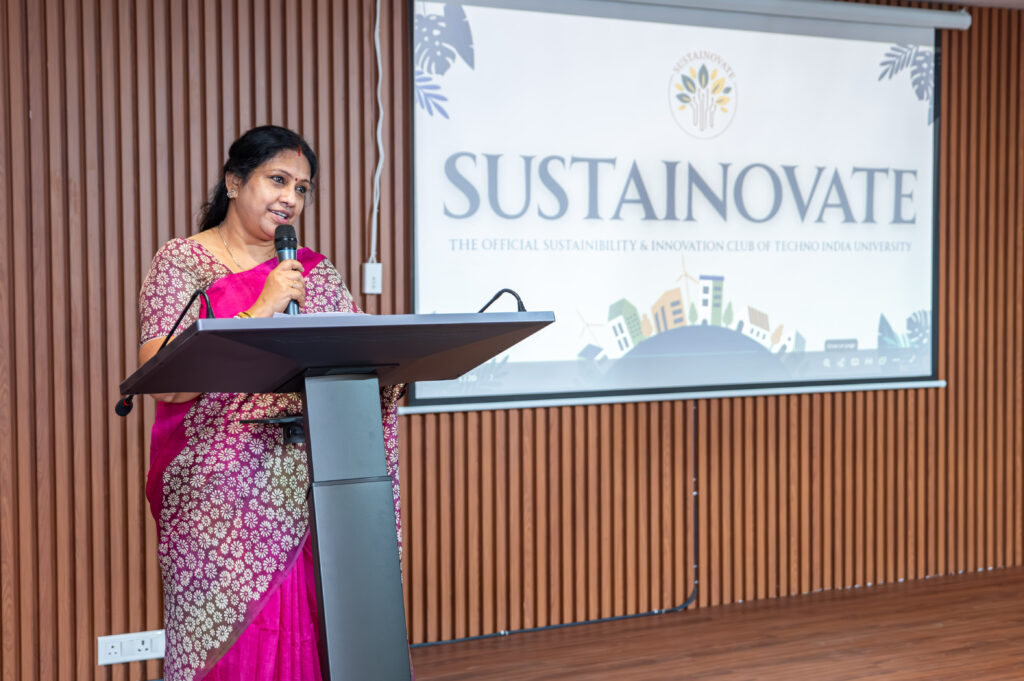
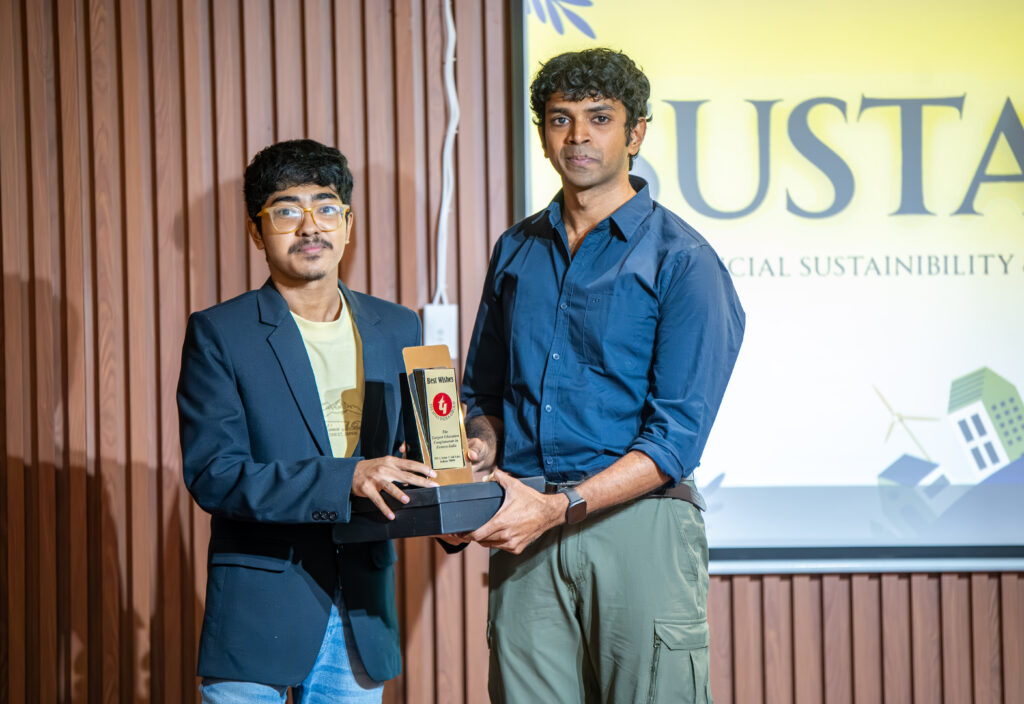
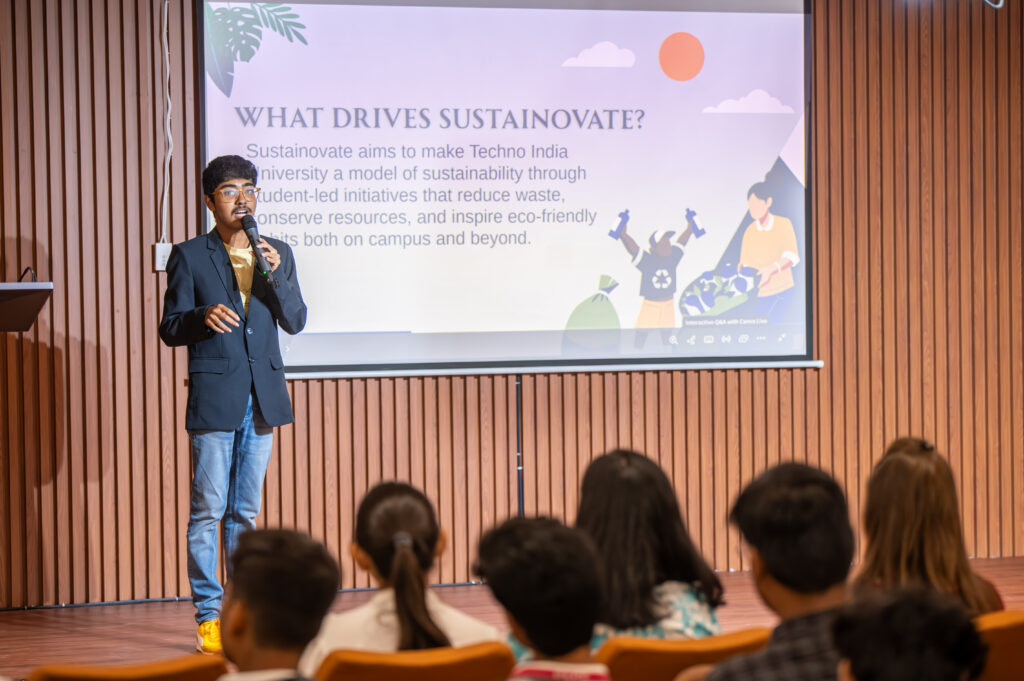
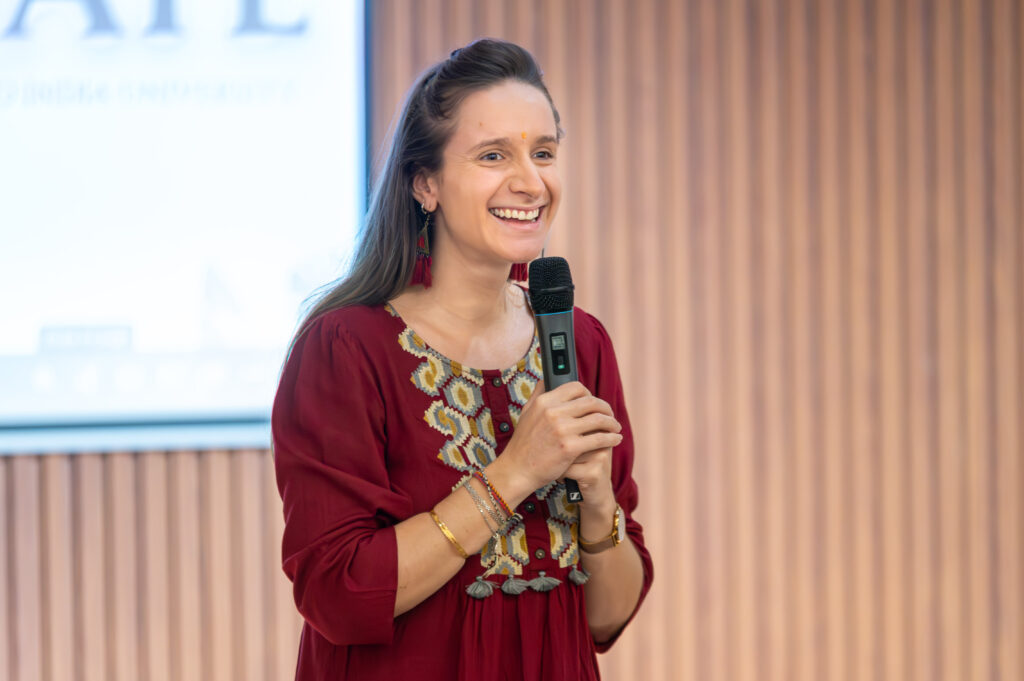
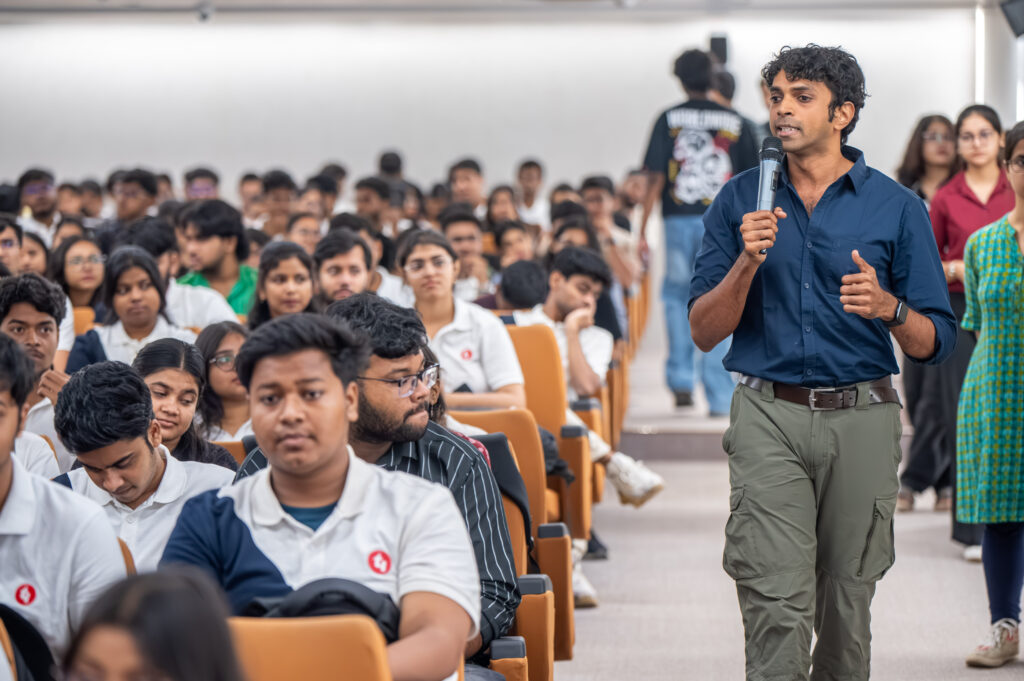
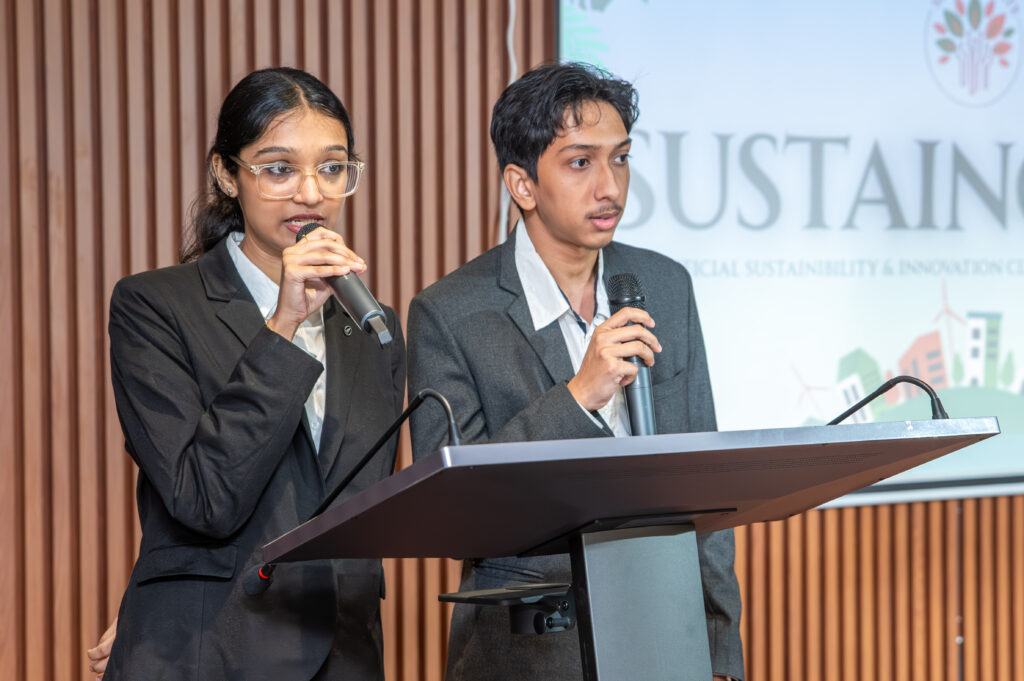
What made the session memorable was how warm curiosity turned into focused technical inquiry. Students asked sharp questions about electric vehicles (EVs), charger types, battery behavior, and real-world deployment on campus. Sushil answered with plain talk and practical sketches, and Pauline ma’am threaded the conversation back to campus strategy and student empowerment. The exchange was intense but encouraging: it didn’t patronize; it invited students to co-design the solutions.
The club made sure the EV conversation didn’t live in slogans. Sushil and the student teams broke down charger power (kW), battery capacity (kWh), and real charging times so that decisions could be made with confidence.
- Power (kW) is the charging rate, while Energy (kWh) is what’s stored or used.
- A 40 kWh battery (10–80%) takes about 4 hrs on a 7 kW charger, 1 hr 15 min on 22 kW, and 30–40 min on 50 kW DC.
- A 60 kWh battery needs roughly 6 hrs, 2 hrs, and 45–60 min on those same chargers.
- Fast charging is convenient but can wear batteries faster — smart charging habits extend life.
- Use-case matters: overnight parking suits 7–11 kW chargers; fleets or visitors benefit from 22 kW or DC fast chargers.
The campus EV plan, co-drafted by students, Pauline ma’am, and Sushil, proposes:
- Installing multiple 7–11 kW AC chargers for hostels and residential use,
- A few 22 kW and one 50 kW DC charger at main hubs,
- Solar-powered, battery-backed charging to cut grid use, and
- Smart scheduling systems for efficient, fair access.
These steps align with Sustainovate’s Carbon & Energy Efficiency goals — making Techno India University a model for green mobility.
Sushil and Pauline ma’am emphasized three overlapping wins:
- Environmental: EVs charged with renewables drastically reduce lifecycle emissions compared with fossil-fuel vehicles.
- Economic: Lower per-kilometer running costs free funds for research, student labs, and further sustainability projects.
- Educational: The campus becomes a living lab — students monitor charger usage, test battery-management strategies, and develop business models for sustainable mobility.
Sustainovate’s domains — especially Carbon & Energy Efficiency, GreenTech, and Research & Innovation — are designed to convert pilots into publishable research, demonstrable ROI, and scalable campus models.
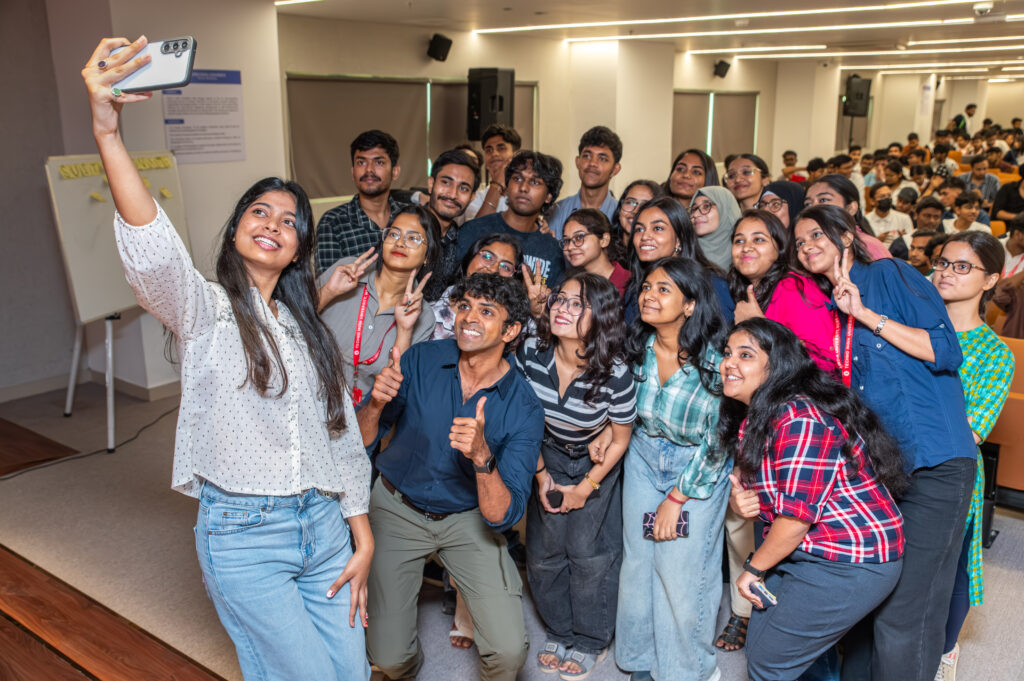
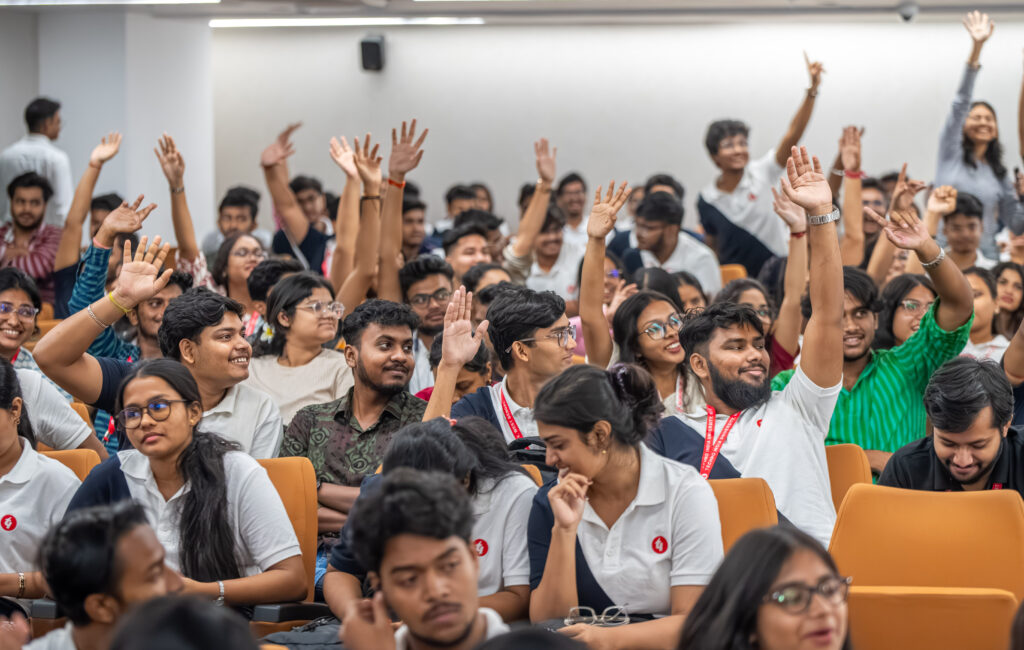
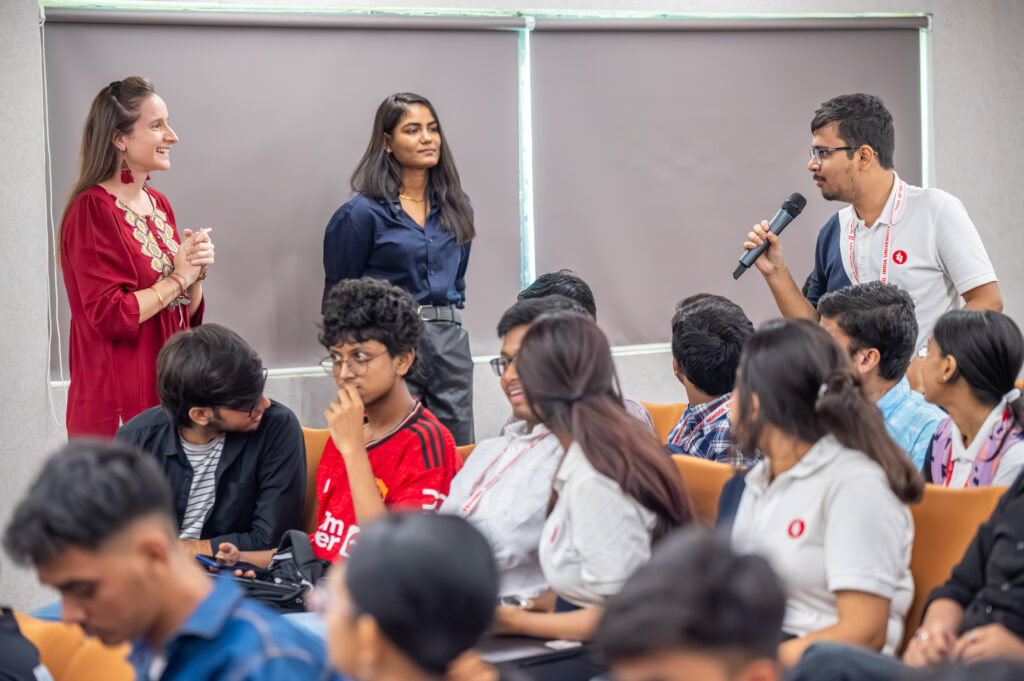
There were small human scenes that captured the spirit of the day: Pauline ma’am listening intently as a nervous first-year proposed a solar-battery microgrid idea; Sushil crouching beside a student to sketch a wiring diagram; the crowd applauding an on-the-spot feasibility calculation. These were not just moments of mentorship — they were a hand-off. Students left not just inspired but equipped, with tasks, numbers, and a route map to pilot projects.
Sustainovate isn’t just an on-campus club; it’s a prototype for civic leadership. With the right administrative support — targeted investments in chargers + solar, integration of charging data into coursework, and partnerships with local governments and NGOs — Techno India University can show how a campus transitions from fossil-first to electric-first mobility while delivering measurable reductions in energy use and emissions. The PPT shared at the launch lays out clear targets and domain plans for scaling these efforts.
Pauline ma’am’s final words were quiet but firm: sustainability demands persistence, and the easiest barrier to overcome is the one we create when we think “someone else will do it.” Sushil left the students with a line that stuck: every kilometer we electrify, every rooftop solar panel we install, every charging habit we change, compounds into a safer climate for future generations. Sustainovate has started the work — now it’s our campus’s turn to pedal, plug in, and lead.




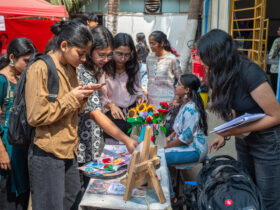
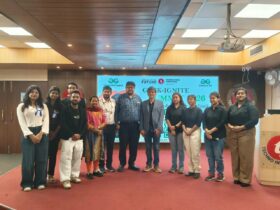
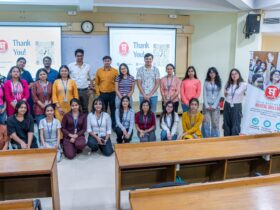

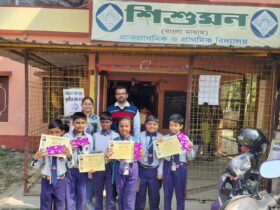

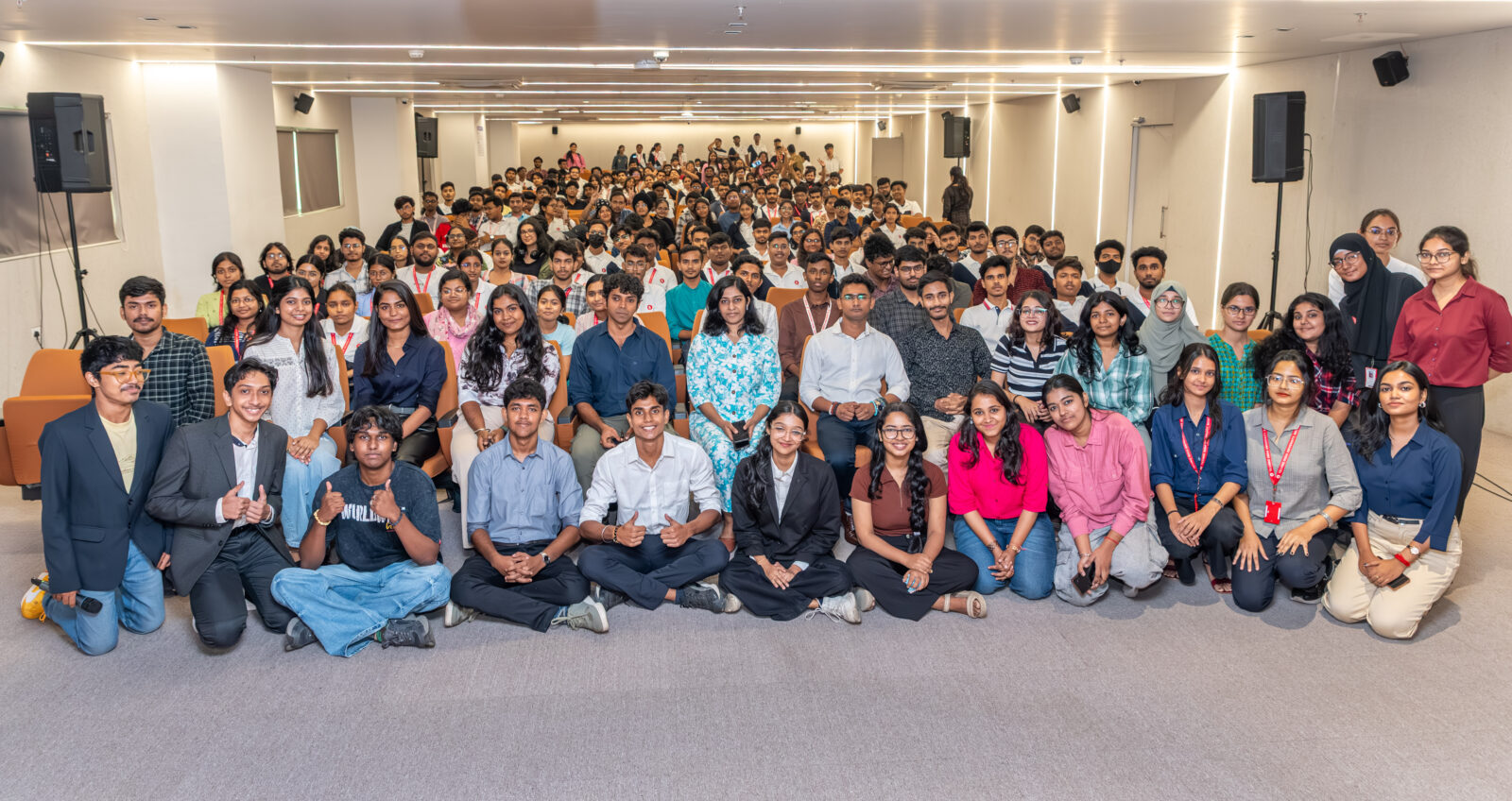
Leave a Reply